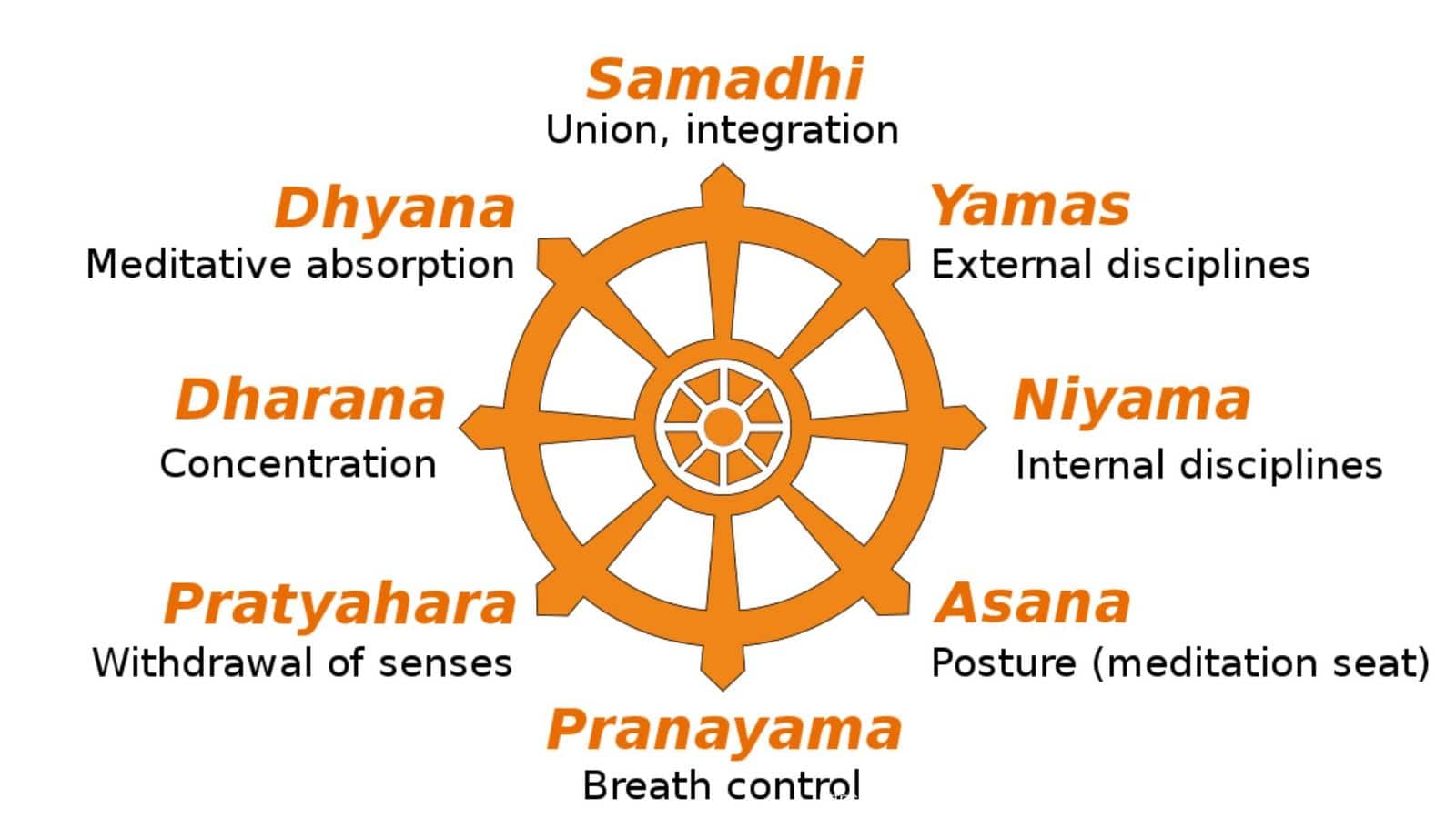In recent years, the popularity of yoga has grown exponentially in BC, Canada, and around the world. Yoga is not just about physical exercise; it also encompasses a rich philosophy that can be applied to counselling and personal growth. As more individuals turn to online counselling, integrating the principles of yoga into therapeutic practices can lead to a more holistic approach to mental health and wellbeing. This article will provide a practical overview of how yoga philosophy can be applied to counselling and personal growth in modern day.
Yoga Philosophy and Counselling
Yoga philosophy, rooted in ancient Indian teachings, offers valuable insights and tools for personal growth and self-awareness. The Eight Limbs of Yoga, as outlined by Patanjali in the Yoga Sutras, provide a framework for understanding and integrating these principles into counselling and everyday life. The Eight Limbs include ethical guidelines (Yamas and Niyamas), physical postures (Asanas), breath control (Pranayama), withdrawal of the senses (Pratyahara), concentration (Dharana), meditation (Dhyana), and the ultimate state of self-realization (Samadhi).
Applying the Eight Limbs of Yoga to Counselling and Personal Growth:
- Yamas and Niyamas: These ethical guidelines serve as a foundation for personal growth and healthy relationships. They can be integrated into counselling by encouraging clients to explore and embody values such as non-violence, truthfulness, and self-discipline.
- Asanas: Physical postures can be incorporated into therapy sessions to help clients release tension, improve body awareness, and connect with their emotions. Asanas can also support clients in developing self-care routines that promote physical and mental health.
- Pranayama: Breath control techniques can be taught to clients as coping skills to manage stress, anxiety, and emotional regulation. Incorporating Pranayama practices into counselling sessions can help clients develop greater self-awareness and control over their emotional states.
- Pratyahara: Encouraging clients to practice sensory withdrawal can help them develop inner focus and resilience, particularly in today’s fast-paced, technology-driven world. Techniques such as guided visualization and mindfulness can be used in counselling to teach clients how to direct their attention inward and cultivate self-awareness.
- Dharana and Dhyana: Concentration and meditation practices can be integrated into therapy to help clients develop mental clarity and emotional stability. Guided meditation and mindfulness exercises can be particularly effective in helping clients manage stress, anxiety, and depression.
Incorporating the principles of yoga philosophy into online counselling in BC, Canada, can provide clients with valuable tools for personal growth and self-awareness. By embracing the Eight Limbs of Yoga, counselors can offer a holistic approach to mental health and well-being that addresses the needs of the whole person – body, mind, and spirit. Encouraging clients to integrate these practices into their daily lives can lead to lasting change and greater overall well-being.





